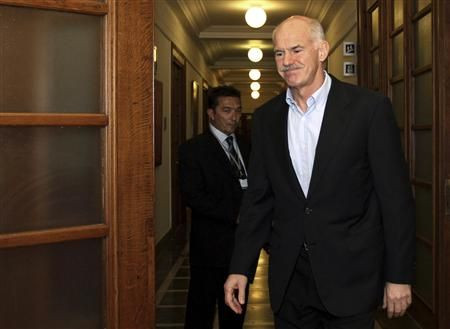EU Should Acknowledge the Bankruptcy of Greece: German Banker

As Eurozone and G-20 finance ministers meet in Paris to scramble to find a solution to Greece’s enormous debt problems, some German bankers think Athens is already bankrupt and that the European Union should admit it.
Andreas Schmitz, president of BdB, a German bank lobbying group, told the German magazine WirtschaftsWoche that European financial officials should now establish rules that will make lenders set aside capital on their balance sheets for sovereign government bonds.
Greece is not able to pay back its current debts even over the course of generations, Schmitz said.
Schmitz’s viewpoint echoes the recent words of a German conservative MP who also charged that Greece is bankrupt and would probably need a “haircut,” forgiving a minimum of 50 percent of its debt.
Michael Fuchs, a deputy parliamentary floor leader for Chancellor Angela Merkel's Christian Democrats, told the Rheinische Post:
Greece is bankrupt. Probably there is no other way for us other than to accept at least a 50 percent forgiveness of its debts.”
Meanwhile, Schmitz also called for changes in the Basel II banking regulations, which determine how much in capital reserves lenders have to keep on-hand for risk-weighted assets. Under current rules, all Eurozone debt can be assigned a zero risk rating, which provides a powerful impetus for banks to purchase government bonds.
The current situation shows that zero [risk-weighting] accounting doesn't accurately reflect reality, Schmitz said.
Politicians are not tackling this issue, since it concerns them.”
According to Reuters, officials of the German state of Hesse, where Frankfurt, the country’s banking center, is located, said more than a month ago that it would seek to end the exemption of capital reserves for central government debt.
At that time, Hesse's finance minister, Thomas Schaefer, and its economy minister, Dieter Posch, said that the exemption distorts investment markets and the underlying inherent risks.
However, Schmitz also said he was against a forced recapitalization of German banks.
Compulsory recapitalizations do not solve the political crisis of confidence, he said.
© Copyright IBTimes 2025. All rights reserved.




















